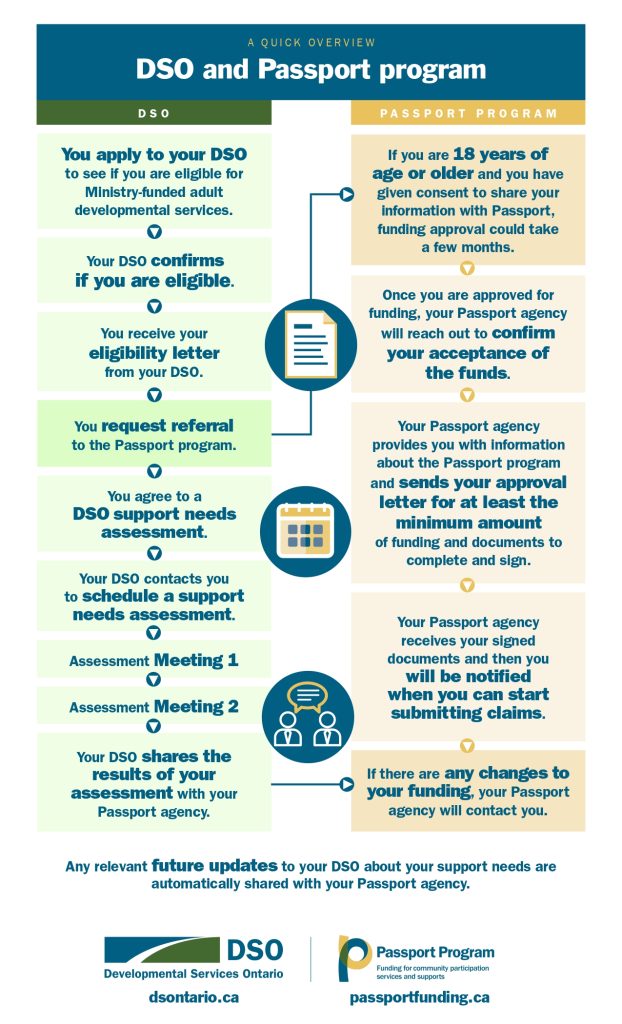#FinancialFridays: Understanding Disability-Related Programs In Ontario
Part 2 – Developmental Services Ontario (DSO)
Last Friday, we shared a quick overview of the disability-related programs offered through the Ministry of Children, Community, and Social Services (MCCSS), or “The Ministry.”
Today, we’re taking a closer look at one of two programs that often get mixed up (and for good reason—they can be confusing). We’re starting with Developmental Services Ontario (DSO).
Next week, we’ll explore the Passport Program.
What is Developmental Services Ontario?
DSO is the access point for getting Ministry-funded services for adults with developmental disabilities.
If you or your child received services before turning 18—such as:
- Special Services at Home
- Assistance for Children with Severe Disabilities
- Ontario Autism Program
—then it’s time to connect with DSO as they approach adulthood.
When and How to Start
- Start at age 16 by contacting your local DSO office: Find Your Local DSO
- Why start early? The application process takes time, so it’s best to begin as soon as possible if you’re 16 or older.
- Use this step-by-step guide: DSO Application Process
The 4-Step Application Process
- Gather your eligibility documents
- Apply online or call your local DSO
- Meet with an assessor who will help complete your application package and determine your level of support
- Stay in touch – keep DSO updated if your situation or contact info changes
You can call your DSO at any point if you have questions or need help.
Services Available Through DSO
Services vary by region, but here’s what might be available:
Specialized Supports
- Adult Protective Services
- Behavioural Services (consultants)
- Case Management (someone to help coordinate supports)
- Person-Directed Planning (a process to help you explore your goals and needs)
Housing Supports
Provided by local agencies and funded by the Ministry, these may include:
- Group homes or group living
- Supported independent living
- Host family home or associate living
Community Participation Supports
- Recreational activities (sports, art, crafts)
- Volunteering in places you care about
- Life skills (cooking, money management)
- Employment-related opportunities
Caregiver Respite
These services give primary caregivers a short break while ensuring quality care and support is still in place.
Passport Program
This program reimburses adults with developmental disabilities for community-based activities and participation.
We’ll cover this in detail next week.


